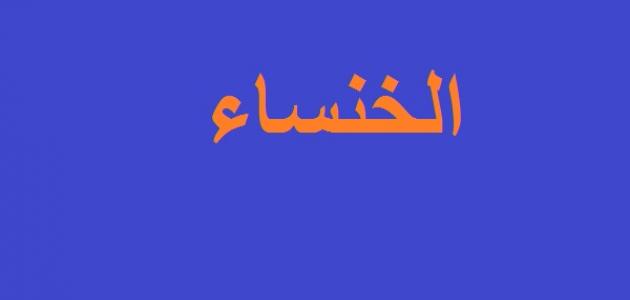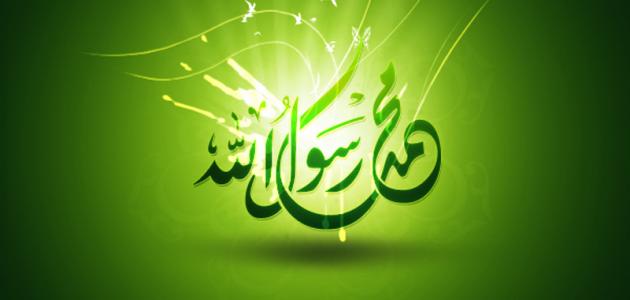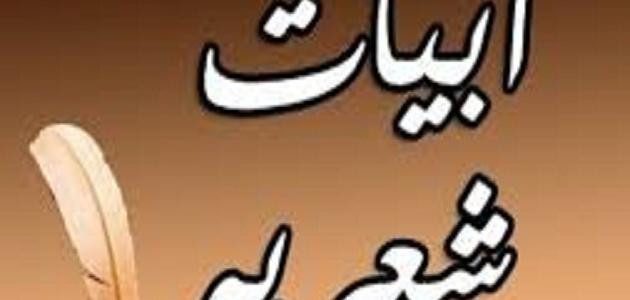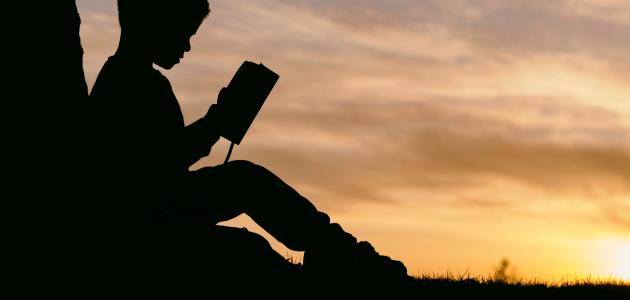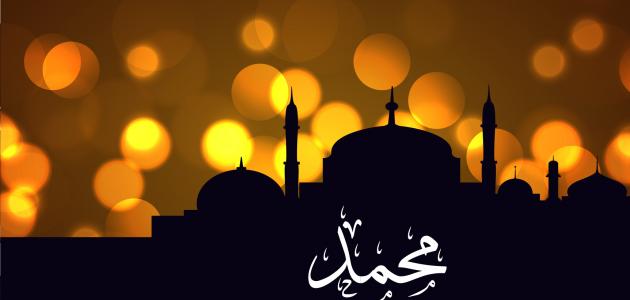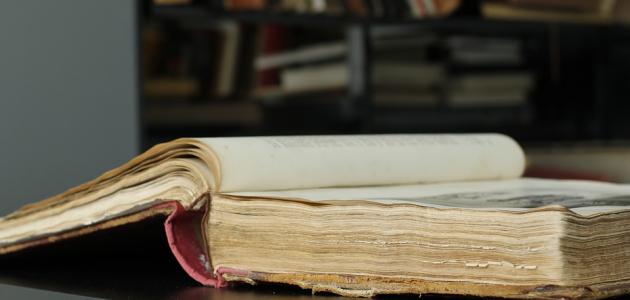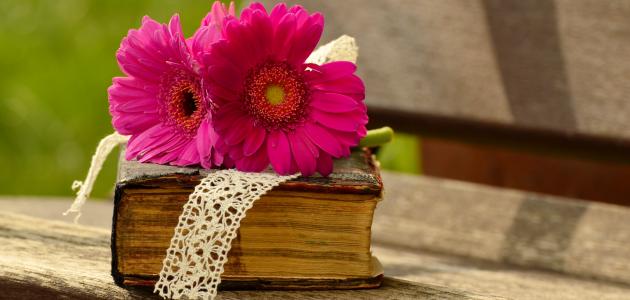Khansa
Her name is Tamadur bint Amr Al-Salamiyah (575 AD - 24 AH / 645 AD), a veteran companion and poet from the people of Najd. She embraced pre-Islamic times and Islam and converted to Islam. She was famous for her lamentations for her brothers Sakhr and Muawiyah, who were killed in pre-Islamic times. She was nicknamed Al-Khansa’ because of the high tip of her nose.
History revealed to us an aspect of Al-Khansa's life, and in its light we see her relationship with her two brothers. Hardly had an incident ended before another incident began, as if history used those events in her life to monitor and record them, and Sakhr’s position towards her is not far from us when Muawiyah tried to force her to marry his friend Duraid, so she turned to him to help her and achieve what she desired. Not far from that position was his position towards her when her husband, Abd al-Uzza, got her into financial trouble, and she found no refuge in anyone else to seek, and he was generous to her with all the meanings of that word. He divided his money into two halves and gave her the choice between one of them, until his wife got fed up and objected, so she said: (Isn’t it enough for you to divide your money until you choose her?) So he said, cutting off any objection from her: (By God, I will not give her her spark when she is a horse, and her shame has sufficed me, and if she were to die, I would tear her veil and take her hair as a waistcoat.) .
It was one of the days of Ukaz, and Al-Khansa’ wished that time would stop there, or that she could pass by without it passing by, for nothing in her life was more miserable than that day, when Mu’awiyah bin Amr’s eyes fell on Asma Al-Miriyya, and he was impressed by her beauty and her self-pampering, so she refrained from him, saying: Didn’t you know? I am with the master of the Arabs (Hashim bin Harmala Al-Ghatfani?) He said, as she provoked him with her response: By God, there is no comparison between him and you. She shrugged her shoulders and said defiantly: “It's your business and his business.” She went to Hashem and told him what had happened. He went off angrily until Muawiyah came to ask him about the news, and Muawiyah said: By God, I wish I had heard of your mourning, and then the season ended, and the echo of the conversation was still ringing in Muawiyah's ears. He prepared to attack the Banu Murrah, the people of Hashim, and his brother Sakhr forbade him, but to no avail.
Read also:Poetry in praise of a friendHe set out with two horsemen from Banu Sulaym, until when he approached the homes of Banu Murra, birds and a medical bird flocked to him, and his companions fled from them, and they stayed with him until he returned. Hashem heard this and said: Nothing prevented him from taking action except cowardice! The word provoked Muawiyah when he heard it, so he went out the following year insisting on the invasion, but his companions fled from the antelope of Sanih, so they returned, and nineteen knights remained behind, including: Abd al-Uzza al-Wahi al-Sulami. Muawiyah and his companions received water, and a woman from Juhayna - Ahlaaf Banu Sahm bin Murrah - recognized them, so she slipped away until she came to Hashim bin Harmala and told him that Muawiyah was accompanied by nineteen men from his company not far away.
Hashim went out with his brother Duraid and a group of his people, and they killed Muawiyah, and the Banu Salim cavalry attacked their enemy, so Malik bin Al-Harith killed Muawiyah, and they returned to Sakhr, thinking that they had compensated him with the urgent revenge they had achieved, but Sakhr was not satisfied, but rather set off to go to Banu Murrah. He asks them: Who killed Muawiyah? They were silent for a long time, then Hashem said: Know, O Abu Hassan, that if you hit me or my brother Duraid, then you have achieved your revenge. Sakhr said: Did you shroud him? They answered: Yes, in Burdin. He said: Show me his grave. So they went with him until when he saw the grave, he became alarmed, but he soon regained his composure and said: (It is as if you had denied what you saw of my alarm, for by God, since I became wise, I have not spent the night except idle or idle, seeking or being sought, until Muawiyah was killed, and I never tasted sleep after that.) .
Read also:The Prophet's lamentationHe asked about Muawiyah's horse, Al-Shamma, and he brought it to him. Then he left, promising that he would come to them next year, and Sakhr fulfilled his promise. He invaded them at Shamaa, defeated them, and killed a number of them (Duraid). The Banu Ghatafan were not the ones to leave Sakhr like this, so they went out after him, seeking him, and his sister’s son, Al-Abbas bin Mardas, stood beside him, until his seekers passed, and Sakhr returned to the homes of Banu Sulaym, and he said in response to those who asked him to attack them:
She says not to insult Fawares Hashem
And what about me when they satirize them and then financially!
I refuse to curse that they have harmed my dignity
And the gift of Al-Khana is not from the north
If someone gives a greeting to a dead person
May the Lord of mankind salute you, Muawiya
And he found that I did not tell him
I lied, and I did not give him money
Al-Khansa and her two brothers
Many scholars - who have met her elegies in Sakhr - criticized her lack of poetry in lamenting Muawiyah. The truth is that her hair in Muawiyah is not little in itself, but it is little when compared to her hair in a rock. Was that due to the sudden shock, which joined her previous shocks, bridging her tongue and freezing her expressions? Or is it the fear for her brother Sakhr, lest her poetry might irritate him, and he - who was not stingy on her behalf - would rush to his death, and then she would lose her brothers, just as she lost her husband and father?
Read also:Ahmed Shawky to praise the MessengerIf we return to the customs and morals of the Arabs in lamentation, the matter regarding Muawiyah would seem natural to us, with no abnormality in it, and no need to call for these assumptions or some of them. It was among the morals of the Arabs to refrain from crying for those who died in battle. Because they consider their lamentation and crying to be satire or equivalent to satire, for they only went out to be killed, and therefore their lamentation - and in this case - comes as a eulogy in which they mention the virtues of the killed person, and his position in his tribe, and for this reason some of them criticized that approach in Muawiyah’s elegies - and they did not pay attention to the committed character - so they said Her lamentations therein were devoid of tears, including her saying:
Do I not see people like Muawiyah?
If one night it knocks suddenly
It is an intuition that dogs listen to their senses
And you come out of the secret of the Naji and make it public
Don't I see the rose knight as a knight?
If it is caused by boldness and publicity
It was the ravages of war at its outbreak
If she rolls up her legs and is smart
And he leads one horse to another as if it were
A cough and vultures with thugs on them
We are afflicted and will not wear out, will be disgraced and will not be seen
On the events of days except as they are
So I swore that my tears and lamentation would never stop
You are saddened by what God has called upon you
We are afflicted and will not wear out, will be disgraced and will not be seen
As the days go by, they are just as they are
Whatever the case, no rational person would accept that this incident happened to Al-Khansa’ without grief overcoming her. She was able to repress her sorrows and remain silent out of fear for Sakhr, or the morals of her people forced her to remain silent. Sakhr, the generous and compassionate Sakhr, would not have remained silent, and it would not have satisfied him to avenge Muawiyah against (Duraid). ) his friend while he was alive, and Sakhr was not convinced of this double revenge for his brother, so he continued his raids on Marra, until he was wounded in combat by a man from Faq`as, which was a tribe of lions that was allied with the Bani Murra, and his wound was from a stab inflicted on him by Thor bin Rabi’a al-Asadi. He fell ill with her for a year, and his life became boring, to the point that his wife asked about his condition, and she said: He is a human being, there is no living person to be comforted, nor a dead person to be mourned, and we found out about both of these things from her. The mother answers: “He is in better condition. He has not been better since he complained than he is today, and we are still fine as long as we see his darkness in us.” Sakhr said:
I see Umm Sakhr's tears drying up
Selima became bored with my bed and my place
So any person is equated with a virtuous mother
He lived only in misery and humiliation
When the affliction continued for a long time, they said to him: If that piece had been cut off, we would have found that he had recovered, and there was a piece of cloth in the cavity of the wound, so he said: It is your business and it is! Some of them felt sorry for him and said: Death is easier for me than what I am in, so they heated a blade for him, then cut it off, so miserable is his soul. Tamadur came - holding her heart in her hand - asking: How was it? Be patient? She would not have been able to see that scene, and the wretched Sakhr heard Tamadur’s question and answered her, reassuring her, knowing that nothing reassures her:
Our rent is fir
On people, all wrongdoers are wrong
If you ask me whether I was patient, then I am
Patient with the uncertainties of time
As if they had brought their lips closer to me
From the two pages ride
Our neighbor, I am not happy in the morning
But the resident did not stay asib
Sakhr remained ill after suffering from both of them, and his mother and sister suffered from pain at every moment for a year or more, and he died on the day of Kilab in the year 615 AD, and before that, Muawiyah died on the day of the first estate of 612 AD, and before them she faced the signs of death in her family on the day her father was uprooted. Amr bin Al-Sharid, and Mirdas, her honorable husband, and the female would not have been able to withstand that sweeping current, no matter how much she clung to stagnation, no matter how wise she was with solid opinion, and no matter how much she resorted to pride, dignity, and reason.
Al-Khansa collapsed, after she had composed herself, and was about to collapse following the killing of Muawiyah had it not been for Sakhr’s presence, and the morals of her people prevented her, but she did not find support, nor did she find an obstacle, and she could not control herself after Sakhr’s death, for her pride, comforter, and protector had died, and so she found in him. She was deeply moved, she was deeply distressed, and she stayed at his grave for a long time, crying, lamenting, and lamenting over him. And just as Sakhr was a refuge for women during her life, removing her grievances and relieving her pain, after her death he was a refuge for her as well, relieving her of the sorrows she had suppressed in herself and the annoyances she had swallowed that had always worried her and disturbed her rest. When Sakhr died, she burst into tears without a way out. It is a combined sorrow, and a grief that bore fruit with the events.
Khansaa and lamentation
One day, Al-Khansa was asked to describe her brothers, Muawiyah and Sakhr, and she said: Sakhr was the dusty time, and Dha’af was the red Thursday, and Muawiyah was the one who said the action. It was said to her: Which of them was more beautiful and proud? She answered them: Sakhr is the heat of the winter, and Muawiyah is the cold of the air. It was said: Which is more painful and tragic? She said: As for Sakhr, he charred the liver, and as for Muawiyah, he made the body sick.
Therefore, it was said: The death of Sakhr bin Amr bin Al-Sharid was the date of birth of the Arab poet, given the many things she said about it. In fact, it was an outlet for that pent-up sadness, and so she would tie her hood during the season, and the Arabs would gloat about her misfortune with her father and her two brothers, and she would say: I am the greatest Arab in misfortune, and people would acknowledge that to her and this is not new, as they had previously acknowledged it to her father when he bragged about his two sons, and then when there was an incident Badr, the time of Utbah and the graying of the sons of Rabi’ah and Al-Walid bin Utbah, Hind bint Utbah came to mourn them, and she was informed of the settlement of Al-Khansa’ and her wedlock in the season, and the Arabs were attacking her with her calamity with her father and two brothers, so Hind said: Indeed, I am the greatest of all the Arabs in calamity, so she ordered her howdah to be repaired and so was Barayah as well, and she witnessed the season in Ukaz. Okaz was a market where Arabs gathered.
Thus, Al-Khansa’ does not see the sister wandering around in the life of her brothers, wandering to the gentle brother, and he will wipe her with his tender hand to remove her troubles and ease her pain. After the death of her brothers, she wanders to nothingness, crying and lamenting, and no one stands in her way. It was necessary for her to announce in public the sincerity of her sadness, and her despair of changing her condition, until she let her tears speak to him and him to speak to her, and that would be solace and comfort for her, and that was in the words of Omar ibn al-Khattab, may God be pleased with him, when he said: (Leave her, for she will always remain sad.) .
Al-Khansa’a combined these three types of lamentations in her elegies. We hear Nadia crying, her sobs rising, arousing grief, and bringing tears to the heartstrings, as she says:
Sakhr's daughter punched the crying woman
I'm not crying tonight except her
She says:
O Judy's eyes, filled with abundant tears
And I cry for the most wonderful protector of the donkey
A branch of the Capricorn people
All of them are made of pure carpentry
I say when his death came to me
People declared the secret secret
my brother! Either you said goodbye to us
A very generous branch of the people
Perhaps it is a custom that you have fulfilled
To young children and orphans
And the Lord of my blessings from You, You have bestowed them upon me
On a stubborn person locked in captivity
My family is a ransom for the one who was betrayed
His greatest glory shines among the news
Killed and sharpened spears
Like lightning shining through the house
Who was once a master
Let him cry with bitter lessons
Let the horses cry when they go treacherous
In the square of death the day after the fall
And let every brother cry over him in distress
The renter's yard narrowed for him
A spring of destruction and a shelter of dew
When people fear the drought of the train
He irrigated a country that included his grave
Towards the meadows of rainwater, Al-Sawar
My question is only for you
Ham gives him water to drink in the wasteland
Tell the one who sacrificed it to be proud
You and death, together, in a slogan
She says:
My eyes cried and the dirt came back
With a flawed person, her will will not be fulfilled
On a rock, and what a boy is like a rock
If the fang does not finish its color
Young boys have not reached his limit
And it does not work hard if it reaches its hard work
I swore by the Lord of bright red plants
To the Sacred House, its end
If the Banu Amr are upset over him
She has visited Banu Amr, her boy
It has a cuff with which it is tightened and a cuff
She milks what dries up with her dew
You see the jaw-dropping smell from Salim
The dew of her tears wets her beards
On a generous man, he made a sacrifice
With a loud, echoing belly
Let goodness cry from a mountain
Those with her dreams and those with her intentions
The scholars of poetry have unanimously agreed that there was no woman whose heart or afterward was more poetic than her. She recited in the Okaz market in the hands of Al-Nabigha Al-Dhubyani and Hassan bin Thabit, her seer, with whom Sakhr lamented:
Is it a speck in your eye or a defective eye?
A mother who has shed her family has evacuated the house
As if my eyes were on his memory when it came to me
An overflow that runs down the cheeks
Crying for a rock is the Hebrew language, and it is lost
And beneath it again, the soil covered it
Khanas cries and continues to cry as long as she lives
It has a ring to it and it is a key
Khanas cries over a rock and it is right for her
Since time has come to her, time is harmful
There must be a death that can be spent with lessons
Eternity is spent in cycles and phases
Abu Amr was among you and ruled over you
What a blessing to those who pray to Nassar
Crucifixion of Al-Nahizah is Wahhab if they are prohibited
In wars, the bold is defeated
Oh, a rock and a source of water that has flowed from it
The people of the resources, there is no shame in receiving it
The sapanti walked into a dilemma
He has two weapons: fangs and nails
And there are no calves on a cow that you roam about
It has two longings: announcement and secret
She is terrified as long as she is terrified, even when she remembers
It is only an approach and a retreat
Do not grow fat for eternity in the land of one,
She was fed up, for it is only tenderness and rejoicing
A day more beautiful than the day he left me
A rock, and eternity has good and bad
And He is a rock for our Guardian and Master
And it is a rock that if we get hot, we will burn
